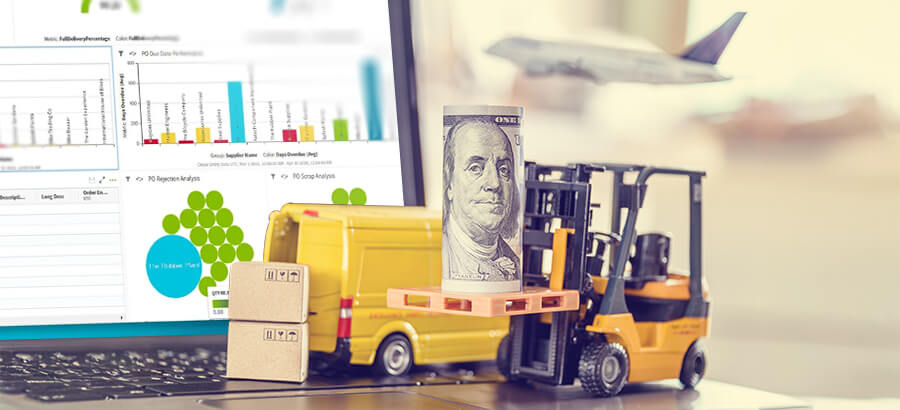People have been talking about the ‘paperless office’ for decades, but many manufacturers and distributors still have staff members manually printing, posting, faxing, emailing and managing documents that go out to customers. Apart from the fact that they’re swimming in a sea of paper, manual document distribution can cost big bucks in terms of wasted time, extra costs and decreased efficiency. Here’s how:
Additional person hours. According to Corp! Magazine, businesses in the U.S. waste about $8 billion per year on managing paper. Think about the time spent issuing invoices, statements, remittances, credit notes, certificates of conformity and terms and conditions to multiple customer contacts.
There’s a good chance your staff members have to customize the content for each contact (a job that can take hours), identify the intended recipient(s) and individually send those documents to each of them. What’s more, locating documents again, if needed, requires searching through file cabinets or tracking them down in someone’s inbox. All those simple administrative tasks eat up time your employees could spend on revenue-generating business initiatives.
Higher costs. Printing, posting and storing paper documents all cost money. These costs can be insidious because they might seem small individually, but they add up. Consider the cost of supplies such as printers, photocopiers, fax machines, toner cartridges (why are these so expensive?), paper, shredders, folders, and cabinets. Don’t forget the cost of energy to operate printers and other machines. And people often overlook the cost of office space. As of 2019, the average sales price per square foot for Canadian industrial properties was $154, and it has continued to rise since, according to the Globe and Mail. A single file cabinet can cost you almost $2,618 in square footage alone.
Human error. It is all too easy to make simple errors when processing or filing documents manually. Worse yet, using an incorrect name in an email or attaching the wrong invoice can make your company look unprofessional. This can also result in late payments because the incorrect customer purchase order was entered or order details on the invoice don’t match the purchase order.
Reduced efficiency. Paper documents take time to reach recipients, slowing the payment cycle.
How Manufacturers and Distributors can automating document distribution help?
When combined with the power of your ERP system, a modern document management solution (DMS) can help manufacturers and distributors automate, streamline and accelerate inbound and outbound communications with customers and suppliers, dramatically increasing efficiency and reducing costs and errors. Here are seven ways automating your document management process can help by allowing you to:
- Email batches of documents to multiple recipients with the click of a button. An integrated document management system enables you to accurately send either individual or large batches of documents to multiple recipients instantly.
- Personalize content. Setting up workflows within your DMS allows you to effortlessly:
- ensure customers and suppliers receive documents in the correct language (say French or English)
- configure the system to send supporting documents, such as a copy of your terms and conditions with each sales order or a purchase order to confirm receipt
- route documents through a chain of employees for approval or notification
- attach a barcode so that key information can be automatically read, assessed, and processed without manual intervention
- Cut down on costs. Switching from physical document storage to a digital DMS can seriously reduce costs for printers, ink, postage and extra person hours. And going paperless is not only good for the environment, it also frees up scarce office space.
- Produce highly professional-looking corporate branded documents. No one likes to receive boring black and white documents or emails. A modern DMS allows you to incorporate logos and images in colour or black and white.
- Increase security. You’re able to password protect documents, giving you the peace of mind that comes with knowing sensitive information is not going to land in the wrong hands.
- Easily locate documents when you need them. Documents are centralized and organized so that all documents related to a specific invoice are linked. That makes it simple to search, locate and analyze them.
- Get invoices paid on time. Automating invoicing eliminates mistakes that could delay payment. Since you always have the most recent financial data at your fingertips, it’s easy to flag past-due accounts and review invoicing and payment habits with an eye to decreasing late payments (for example, by offering early payment discounts or penalizing late payments).
Document management systems are most effective when integrated with an Enterprise Resource Planning (ERP) system. SYSPRO ERP integrates with Spindle Document Management by Draycir to ensure the quick, efficient processing of documents for manufacturers and distributors. To find out more about the benefits of taking a digital approach to document management, check out this webinar.






